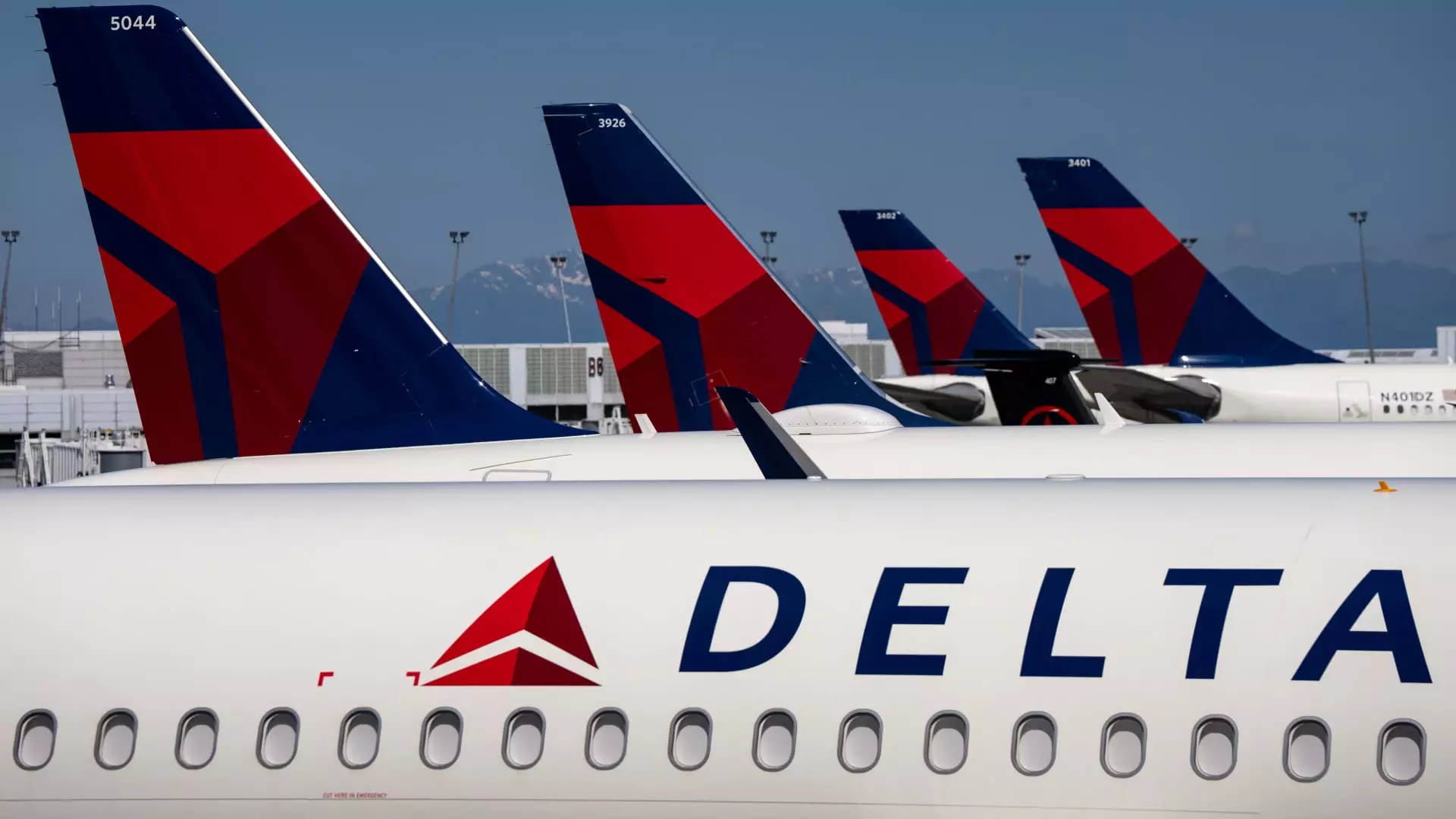Delta Air Lines has historically enjoyed the status of a market leader in the aviation industry, consistently posting impressive profits and bolstering its reputation as the most profitable airline in the United States. However, recent developments signal a precarious shift in consumer sentiment and market stability. As the airline struggles with declining bookings amid President Trump’s convoluted trade policies, CEO Ed Bastian has been vocal about his discontent with what he describes as “the wrong approach.” This is not merely an internal corporate issue; it reflects a larger economic narrative that raises questions about consumer confidence and the sustainability of growth in the airline industry.
Bastian’s comments come in the wake of Delta’s announcement that it will not be expanding its flying capacity in the latter half of the year as initially planned. Historically, airlines utilize such expansions to capitalize on positive consumer trends; however, Delta’s move is indicative of widespread reluctance within the industry to push forward under choppy waters.
Impact of Political Decisions on Business Performance
The ripple effects of political decisions—particularly those tied to trade policies—on consumer behavior cannot be underestimated. After the initial optimism surrounding travel demand at the beginning of the year, a sudden downturn appeared in mid-February. Bastian noted that while travel demand grew at approximately 10%, the environment shifted rapidly as many corporations reevaluated their business travel strategies. To put it bluntly, when consumer confidence falters, businesses tighten their belts, and the airline industry is no exception.
Bastian’s prescient acknowledgment that the circumstances have led to a reduction in main cabin bookings is alarming Yet, amid this bleak picture, premium travel and international routes seem resilient. This creates a dual narrative: while some sectors flourish, others falter, leaving airlines like Delta in a precarious balancing act of adjusting their offerings to appeal to remaining segments of affluence.
Wall Street’s Anxiety and Earnings Outlook
The Wall Street perception of Delta’s struggles reveals that analysts are increasingly pessimistic, slashing earnings estimates and price targets. Typically, analysts’ predictions serve as reflections of broader market sentiments, and in Delta’s case, they signal unease in the air travel sector. The revised earnings forecasts present a stark contrast to the bullish projections Delta made earlier in the year.
The skepticism is palpable—analysts have pointed towards a “reduction in broad consumer confidence and corporate confidence,” illustrating a collective apprehension about the future. Delta’s inability to provide a revised 2025 financial outlook signifies a profound uncertainty that looms over the airline industry. This failure to predict future performance hints at deeper underlying weaknesses and a troubling inability to adapt timely to shifting consumer behaviors and economic conditions.
Sustainability in Growth Strategies
The shift in Delta’s growth strategy is a necessary yet somber acknowledgment of the economic environment. Bastian’s statement that they now aim for flat capacity year-over-year rather than the previously projected increase reflects a strategic retreat in the face of daunting market conditions. While some stakeholders may find solace in seeing Delta retain profitability, the uncertainty surrounding future booking patterns casts a lingering shadow.
In this context, Delta’s decision to prioritize margins and cash flow over expansion is a prudent but disheartening one. It begs the question: what does the industry landscape look like when a flagship carrier opts for stagnation over growth? Though the immediate goal is financial health, the long-term repercussions of such a strategy could hinder competitiveness as rival airlines adapt more nimbly.
The Economic Climate: Adapting or Stagnating?
As the airline industry braces for what appears to be a significant downturn, Delta’s teetering optimism veils an urgent need for innovation and adaptation. The ongoing discourse among CEOs suggests growing discontent with established strategies and an increased desire for recalibration. The central challenge remains: how can airlines, including Delta, recalibrate their models in light of changing consumer demands and political landscapes?
The startling reduction in Delta’s growth forecasts illuminates a broader reflection of economic realities. The airline industry thrives on consumer confidence; thus, adapting to this changing climate is crucial. If the executives at Delta and other airlines do not seize this moment for innovative thinking, there’s a risk not only of further stagnation but also of potential regression when consumers decide to fly again.

